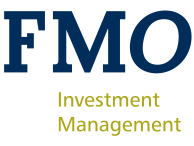


Home to over 210 million inhabitants and the largest economy in all of Africa, Nigeria has often been nicknamed “The Giant of Africa.” Located in West Africa, on the coast of the Gulf of Guinea, Nigeria shares borders with many countries. Within the country itself, it is home to incredible diversity in culture, with over 250 ethnic groups speaking roughly 500 languages. Nigeria is the 7th most populous country on the planet and the most populous within Africa. In fact, Nigeria has experienced incredible population growth, from an estimated 55 million in the early 1970s to over 219 million today.
Nigeria’s economy is the 27th-largest in the world; however, its agricultural sector has not been able to keep up with its explosive population growth. Much of its economic revenue is based within the oil and gas industry. That said the Micro, Small, and Medium Enterprises (MSME) segment plays a large role in the country’s economy, contributing 50% to the national GDP. In fact, 84% of the population are employed by one of the 40 million MSMEs active in Nigeria, accounting for 96% of all Nigerian businesses.

Access Bank Plc is a full-service commercial bank with over 560 branches and outlets across Nigeria, along with 11 subsidiaries in other African countries. For over 15 years, Access Bank has been a close strategic partner of FMO. Over the years, FMO has not only provided financial support, but also helped Access Bank strengthen its E&S processes, making it one of the most sophisticated banks on the continent. Access Bank eventually became Nigeria’s largest bank in 2019, having focused on corporate, commercial and personal banking.
Recently, Access Bank began to broaden its horizon to better service the MSME sector as part of its pan-African growth strategy. For example, the bank expanded its support in the retail segment to support job creation within the local economy, and became a frontrunner in women finance and services. They were also the first Nigerian bank to issue a Green bond and were a driving force behind the Nigerian Sustainable Banking Principles, as part of their strategy to broaden their green portfolio. Through these strategic transitions, Access Bank was able to underscore its increase in responsibility, not only within the banking community, but within the broader Nigerian society.
Over the years FMO has invested in its longstanding client multiple times. The Fund has participated in two loans which are being used to support private businesses and SMEs in Nigeria involved in for example retail, agricultural production, processing, distribution and consumption.
Financial support on its own is not enough. With a booming population, there is often a lack of jobs and capital in the market—particularly for youth, who make up half of the country’s population. Many of them also do not possess the required hard and soft skills to enter the market, further limiting their opportunities.
FMO very recently provided facilities to Access Bank Nigeria, one of which was a NASIRA guarantee facility in local currency, with a complementary Technical Assistance facility. Focusing on young and female entrepreneur empowerment, COVID-19-affected MSMEs, and early-stage start-ups, the program will support on improving both financial and non-financial offerings through digital learning platforms.
By expanding its reach, Access Bank continues to expand its contributions in important areas: firstly, by continuing to provide support to Nigeria’s economic development, which hit its deepest recession in the start of COVID-19. And secondly with an increasing focus on often disadvantaged or marginalized groups, Access Bank contributes to SDG 10, by lowering the barriers of access to finance. With a growth strategy like this, no wonder Access Bank Nigeria became the Giant of Africa’s largest bank.
![]()
![]()
![]()
![]()
560 locations
6,875 employees
42 mln customers